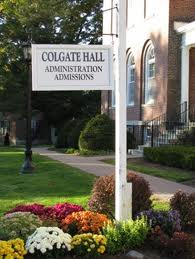4. Past PFE Posts category archive
The Dreaded Wait List 0
Being placed on the college wait-list is not uncommon these days. If that happens, the college should provide a history that describes the number of students on the wait-list and how many have been selected from it in the past, as well as the availability of financial aid and housing. Because of the enormous increase in applications, more colleges are putting well qualified students on the wait-list.
But there are other reasons. It is sometimes because those strong students have not shown enough evidence that demonstrates to the admissions folks that he or she is seriously interested in their college. One giveaway is when a student applies to a cluster of schools that are not related to one another, or maybe in the same athletic league but culturally quite separate. Brown and Dartmouth are both very competitive Ivy League colleges but quite different in educational philosophy and culture.
In guiding our students through this process, we go over the strategies to avoid this perception and outcome. In fact, I probably become quite tiresome in my continual emphasis on the AAA method of due diligence. But it works. The students who take the few minutes to collect this information have no regrets.
Finally, if you are placed on a wait-list and genuinely want to go to that college, let them know in writing.  Provide them with another recommendation and your latest spring grades. Follow their policies, however. But if you have had some good communication with the regional admissions representative at that college, now is the time to reconnect. Talk to him or her for suggestions.
Provide them with another recommendation and your latest spring grades. Follow their policies, however. But if you have had some good communication with the regional admissions representative at that college, now is the time to reconnect. Talk to him or her for suggestions.
Colleges will often say they do not have a priority pecking order from the wait-list, but play it safe and you will be in a better position by making it clear that you will attend if accepted.
The Mail Box Never Gets More Attention… 0
Just when spring fever sets in college applications are piled high in admissions offices across the country the pressure mounts. It is not just in those offices either. All college bound seniors are watching their snail mail and email daily. Some have heard already. You can tell who they are by their body language in the hallways. If you are a student you know what I mean.
Some of the most selective colleges no longer adhere strictly to the common notification of April 1. In the last few years they are trying to get a jump on their competition by unofficially admitting a percentage of the stronger candidates around March 15. Dartmouth College, for instance, may send out selected early notification of future admission letters to some strong applicants in February.
With a head start, these colleges can put psychological pressure on a young scholar to accept their offers of admission, as tentative as they may be. If this happens to you, be cautious and do not rush to send in your deposit. You have until May 1 to do that. Now is the time to evaluate ALL the colleges to which you gain acceptance one final time to see if they are qualified to serve you. You have already proved that you are qualified to be a future student there.
Even Colleges Are Budget Conscious 0
 From Boston University to California’s 3 million-student community college network, the American system of higher education is in turmoil. The economic crash is upending each step in the equation that families use to determine where students will spend four of their most formative and expensive years.
From Boston University to California’s 3 million-student community college network, the American system of higher education is in turmoil. The economic crash is upending each step in the equation that families use to determine where students will spend four of their most formative and expensive years.
Independent colleges that lack a national name or must-have majors are hardest hit. Many have found themselves deep in debt in an effort to remain competitive. They are becoming more conscious of a student’s ability to pay during the admissions process. (Despite what a representative may say at a college fair or when you visit a campus.) Now, as endowments tumble and bills mount, they’re struggling to attract cash-strapped families who are challenged with their own financial situations.
The spending binge by colleges and universities was part of the same trend that created the bubble in the rest of the economy, says Ronald Ehrenberg, an economics professor at Cornell University in Ithaca, New York, and author of Tuition Rising: Why College Costs So Much (Harvard University Press, 2000). Now we’re seeing it burst.
Professor Ehrenberg does not place enough focus, however, on the ever expanding reliance on federal loans and grants that are made available from federal tax payers to fill financial need packages. This includes the expanding use of debt crippling Plus Loans. Instead, he writes more about the escalation in costs because of increased spending (borrowing) to enhance student amenities and other unnecessary expansion of the infrastructure. That is true, but one only needs to look at an academically strong liberal arts college in Pennsylvania to see how much money can be saved when a college does not depend on government subsidies. (Less than five accredited colleges are truly independent.) 
Grove City College does not participate in the federal loan or grant program. That is a big reason why the full cost of attendance there in 2014/15 is less than $26,000! It is not because they pay their professors less, have students sleeping on cots in bunk houses or do not offer financial aid; it is because they do NOT use federal financial aid. As I hope you know, there is an enormous mismanagement of money in most government programs. That is a characteristic of a multi-layered bureaucracy; it is often replete with redundancies and waste. For instance, in order to meet the eligibility requirements to use Stafford, Perkins, Plus loans and Pell and SEOG grants, colleges have huge administrative expenses that have nothing to do with educating your son or daughter.
All the more reason to approach the college planning process realistically. If you are just beginning the process you should know that smart college planning begins with a free consultation. During that time you will learn what steps you can take on your own to avoid the pitfalls of picking the college that is in financial trouble and cutting back on programs and professors. Clearly, these will have a negative effect on the time and money spent pursuing a degree in the appropriate major.
Standard & Poor’s predicts bankruptcies will rise from the typical one or two schools that fold each year. Small colleges with no reputation could go out of business, says Sandy Baum, a senior policy analyst at the College Board, They are very tuition-driven, so if they cannot get tuition revenues, they will be in really bad shape. In addition, Richard Kneedler, a former president of Franklin & Marshall College, a Lancaster, Pennsylvania-based college founded in 1787 with financial support from Benjamin Franklin, says many small schools face this predicament. Therefore, buyers beware.
SAT and ACT Tests Do Not Measure Success 0
 What do you mean by that, you ask? Isn’t it true that colleges that ask for scores are doing so to determine the applicant’s success at that college?” Yes, that is what they say, but those colleges that still use those scores do so as an easy benchmark to categorize an applicant in the early stages of review. That is particularly true at large universities, public and private.
What do you mean by that, you ask? Isn’t it true that colleges that ask for scores are doing so to determine the applicant’s success at that college?” Yes, that is what they say, but those colleges that still use those scores do so as an easy benchmark to categorize an applicant in the early stages of review. That is particularly true at large universities, public and private.
Bowdoin was the first very competitive college to announce that they would not require the SAT or ACT scores. It was a brilliant marketing move because applications increased along with rejections resulting in a lower percentage of admitted students. Not to mention that applicants who did score well, submitted their scores, thus creating a higher average score overall. That was when college ranking systems were becoming ubiquitous. The US News & World Report spawned a new and very profitable niche in magazine publishing.
Since then, over 800 colleges have instituted a test optional policy. Keep in mind, however, that all colleges place more importance on the rigor of the high school transcript and that means that more scrutiny will be placed there. That has ALWAYS been the case at the more competitive colleges.
 Having said that, however, many of those test optional colleges still buy the names of high test scorers from the non-profit gold mine called the College Board. How do you spell hypocritical? On the other hand, test optional Bard College in the beautiful Hudson River Valley of New York, does not buy names from the College Board. That means they look at the potential for success in an applicant in depth.
Having said that, however, many of those test optional colleges still buy the names of high test scorers from the non-profit gold mine called the College Board. How do you spell hypocritical? On the other hand, test optional Bard College in the beautiful Hudson River Valley of New York, does not buy names from the College Board. That means they look at the potential for success in an applicant in depth.
Now, what about the success thing? How do you measure success? Is success measured in material possessions, personal relationships, career satisfaction, happiness, financial security or optimal health physically and spiritually? Look around you. I would bet that if you were to know the SAT or ACT scores of adults you would not see an appreciable difference in successful outcomes between the high and average scorers. I have known a few scientists and engineers and even some members of Mensa who had perfect scores in high school and college but because they live completely in their heads, particularly the self-limiting left brain; they are sometimes challenged when in comes to personal relationships, critical thinking and common sense.
Nonetheless, I do believe that preparing for the SAT is very helpful for a student regardless if he or she has college aspirations. The best test prep we have found over the last 20 years of reviewing such programs is right here. The reason is that when you come right down to it, the SAT is a reasoning test. And we all have to learn to reason and sharpen our skills there, do we not? If you are parent or a student, walk through the 30 sample questions and you too, will have a light bulb go on over your head.
Are You a High School Junior with College Aspirations? 0
Grades have been shown to be the single most important predictor of academic success in college. The College Board SAT and ACTstandardized tests are not to be ignored but the more As and Bs you have in your record the more positive attention admissions committees, aka Adcoms, will pay to your application. If you are a junior, you can rectify some academic slumps in the freshman and sophomore years by finishing strong this year.
But if you are looking at very competitive colleges and not taking the most challenging courses offered at your high school, it may be much harder. A few aberrant Cs will not automatically exclude you from consideration, but you may have to explain the reasons behind the lower grades. Many college application supplements, in fact, ask students to explain any performance that is inconsistent with the larger academic record. It is not uncommon for a strong student to experience a downturn in grades due to an illness, injury, family or school relocation and so on. (I did not like the teacher is not a good reason.)
In any case, print out and put on your fridge the steps you need to take over the course of your junior year. If you have any questions or want to know more about our services, do not hesitate to email or call anytime.
We are celebrating our 20th year of guiding students (and parents) through this milestone step teenagers take in life’s journey. We appreciate the opportunity to be part of it.
Teacher and/or Professor Recommendations 0
 An important part of most college applications is often not taken seriously enough. Colleges will typically ask for two types of teacher recommendations and perhaps one from your high school counselor. The teachers you ask will be those you had for core academic courses in your junior year. They may not be the ones who gave you the best grades, but those that like you and classes in which you may have made the most contribution in class or the most dramatic improvement during the year.
An important part of most college applications is often not taken seriously enough. Colleges will typically ask for two types of teacher recommendations and perhaps one from your high school counselor. The teachers you ask will be those you had for core academic courses in your junior year. They may not be the ones who gave you the best grades, but those that like you and classes in which you may have made the most contribution in class or the most dramatic improvement during the year.
Because college admissions counselors want to see the side of you in class that does not always come out in your application elsewhere, it is important to help the teacher focus on something that you did in class. Writing a thank you letter like this * immediately following the teacher’s positive response to your request is a sure-fire way to get a stellar recommendation. (* Note I mention a letter by a teacher, for teachers in the letter. Call me for that letter. (978) 820-1295)
Of course, not all recommendations will be as powerful as this one sent in for William Smith, but send that thank you letter and you will come close. By the way, if you are a full service client, read the expanded recommendation tips in your handbook and pay attention to paragraph four of the model thank you letter.
Finally, here are five steps toward getting that stellar teacher recommendation. They support the points made above. Incidentally, if you are a junior or sophomore, you can get a preview of how many teacher recommendations you will need here. Keep them in mind if you are a current undergrad looking for professor recommendations for a job and/or graduate school. Learn now to be professional in your approach, it will serve you well.
Do Admissions Interviews Matter? 0
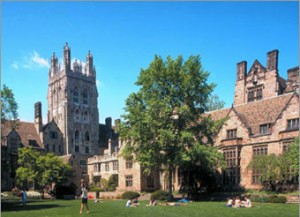 One of the most common questions from students is How important is an admissions interview? The common response for this and many other questions is, It depends.
One of the most common questions from students is How important is an admissions interview? The common response for this and many other questions is, It depends.
That is, which colleges on your list recommend or require interviews. If so, are they informational (most say they are) or evaluative? What time of year of year are they offered?
All those questions can be quickly answered when the student does his due diligence at each college web site using the AAA method. That issue I addressed in detail in the past as well here.
For budgetary reasons, many of the more competitive colleges offer alumni interviews after an application has been submitted and the prospect appears promising. As to the influence of the alumni on the final decision, that also depends. I once had clients who were alumni interviewers for their alma maters, Dartmouth and Cornell. The Dartmouth graduate once interviewed a prospective student; he disliked his attitude and fit so much he gave Dartmouth a two thumbs down (four if he had four), but he was accepted anyway! Here is an eye-opening article to help prepare for an alumni interview at the more competitive colleges. Plus, here are some important points and VERY helpful tips to prepare for an interview by a seasoned college interviewer. In short, do your AAA due diligence ahead of time.
The interview can be before the application deadline or after. If it is required, the interview is obviously an important part of your application. If you are a client of ours with interviews in the future, be sure to contact us. We can do some practice together.
Some colleges require that you request an interview. By the way, if you are not yet a senior, most colleges will not be interviewing you unless you have traveled from a great distance to visit the college. Check with your regional admissions counselor for each college. Most of the elite colleges may simply contact you after your applications is submitted. These are generally conducted by local alumni of that college and are limited. Sometimes, depending on where you live, there may not be an opportunity for an alumni interview. In such instances, the schools may strive to offer you a telephone interview. If that’s not possible, then you will not be penalized for not having an interview. It is the effort you put forth that counts, so do not worry.
Your College Essay aka “Personal Statement” 0
 Yes, your college application essay is your personal statement. It is an opportunity to express your viewpoints, to be creative, to demonstrate your writing ability, and to distinguish your application from the many others that the Admission Officer will read.
Yes, your college application essay is your personal statement. It is an opportunity to express your viewpoints, to be creative, to demonstrate your writing ability, and to distinguish your application from the many others that the Admission Officer will read.
Your essay can provide the Admission Officer with insight into at least three of your personal qualities:
1) How well you think
2) How well you write, and
3) Who you are
Famous Pulitzer Prize winner sportswriter, Red Smith, once said: “Writing is easy. Just sit and look at a blank sheet of paper until blood starts dripping from your forehead.” 🙂 Yes, even writers who are paid handsomely, have a tough to time to place words on paper in the beginning. So, do not be fearful or intimidated by the task. Your college essay is an important part of your application. An outstanding essay can have a positive influence on the decision. Likewise, a poorly-written, hastily done or sloppy essay can have a negative influence on the admission decision. It is worth your time to produce your best work.
Without a doubt, high school students fear writing the personal essay more than anything else, especially those who are not “writers.” It doesn’t have to be that way, if you follow some proven techniques for organizing your thoughts, writing, editing and typing.
Want tips on how to start your essay? Watch this Webinar. Even though you may not be applying to a University of California school, the tips on writing a “personal statement” will be helpful.
Quite possibly the most important thing to keep in mind is that you should be expressing yourself – who you are and what you believe in. Your goal is to make the admissions staff notice you…and to show them what you’re all about…and why they should accept you.
There are no right and wrong ways to write essays – only what is right for you. Since you may have different essays to write for different colleges, the first part of this section are specific hints, do’s, don’t, tips, suggestions and techniques.
Just How Important Is the Essay? . . . VERY!
Sometimes, in the hoopla about SAT and ACT test scores, class rank, AP courses and GPA, the weight of the personal statement/essay is overlooked. Most admissions counselors will tell you that the essay ranks right up there as an important piece of the puzzle, and can often be the final deciding factor between candidates who are otherwise equally qualified.
To show you the relative importance of the essay, here are a couple of paraphrased comments about the essay made by guidance counselors and college admissions:
*The better the college or university, the greater the importance of the essay, and the more it contributes to the final determination.
* At a very large university receiving over 15,000 applications per year, every essay is read. But the opening paragraph is key to getting attention.
* College admissions staffs use the essay to get to know the student more personally to go beyond what the numbers show.
* Many admissions staff views the application as a “flat” document, but they view the essay as a third dimension, to bring life to the application.
Just What Are They Looking For?
On a very broad plane, the admissions staff is looking for these characteristics in your essay – regardless of the topic – they want to see your ability to: Read more »
Are Colleges Delivering? 0
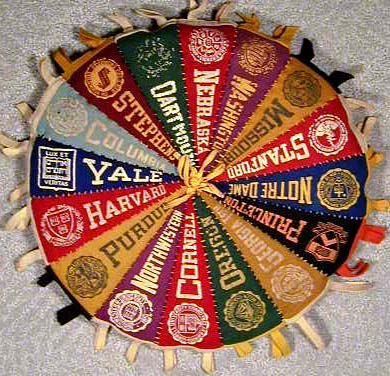 One of the first questions I will often ask students is, Why do you want to go to college? The question can sometimes be taken as rhetorical. It is not. What really is the purpose of college? This thought provoking inquiry may seem strange from someone who enjoys being part of this milestone step many teens take following high school.
One of the first questions I will often ask students is, Why do you want to go to college? The question can sometimes be taken as rhetorical. It is not. What really is the purpose of college? This thought provoking inquiry may seem strange from someone who enjoys being part of this milestone step many teens take following high school.
But since I have been taking notice of such things in 1984, I have noticed a lowering of academic standards in our secondary schools and since 1992, our colleges. I do not believe the fault lies with teachers and professors as much as it does with the Departments of Education and governmental bureaucracy. Even in the highly touted brand name colleges across the country, too many graduates have not fully developed the critical reading and thinking skills they need to make sound life decisions.
In the last State of the Union address, President Obama called for more Americans to go to college. In referencing one of John Kennedy’s goals in space, he likened this goal as our generation’s Sputnik moment. In the sixties, there certainly was a spike in the advancement of the sciences and humanities, but what now, fifty years later, has changed? Perhaps former President G.W. Bush unwittingly exemplified the answer best when he said, “You teach a child to read, and he or her will be able to pass a literacy test.”
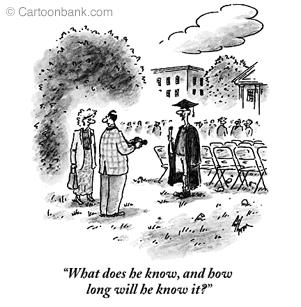 According to authors and researchers, Richard Arum and Josipa Roksa, the primary problem today is the lack of academic rigor. In their recently published tome, Academically Adrift: Limited Learning on College Campuses they have confirmed what many observers believed regarding higher education… it is not delivering it. Recognition of the problem, however, is just the first step toward positive solutions. College English Professor, William Pannapacker, has written a very insightful analysis of why the vast majority of college undergraduates are not learning. He writes, Why should we send more students to college at an ever greater cost when more than a third of them, according to Arum and Roksa, demonstrate “no improvement in critical thinking, complex reasoning, and writing skills” after four years of education? What good does it do to increase the number of students in college if the ones who are already there are not learning much? Would it not make more sense to improve the quality of education before we increase the number of students? In the Chronicle of Higher Education, he beautifully outlines the reasons for such diminishing results and offers some solutions. Here they are.
According to authors and researchers, Richard Arum and Josipa Roksa, the primary problem today is the lack of academic rigor. In their recently published tome, Academically Adrift: Limited Learning on College Campuses they have confirmed what many observers believed regarding higher education… it is not delivering it. Recognition of the problem, however, is just the first step toward positive solutions. College English Professor, William Pannapacker, has written a very insightful analysis of why the vast majority of college undergraduates are not learning. He writes, Why should we send more students to college at an ever greater cost when more than a third of them, according to Arum and Roksa, demonstrate “no improvement in critical thinking, complex reasoning, and writing skills” after four years of education? What good does it do to increase the number of students in college if the ones who are already there are not learning much? Would it not make more sense to improve the quality of education before we increase the number of students? In the Chronicle of Higher Education, he beautifully outlines the reasons for such diminishing results and offers some solutions. Here they are. 
“You can not solve a problem with the same thinking that created the problem.”
Albert Einstein
Why Are Students Not Learning? 0
By Thomas H. Benton
Lack of student preparation. Increasingly, undergraduates are not prepared adequately in any academic area but often arrive with strong convictions about their abilities. So college professors routinely encounter students who have never written anything more than short answers on exams, who do not read much at all, who lack foundational skills in math and science, yet are completely convinced of their abilities and resist any criticism of their work, to the point of tears and tantrums: “But I earned nothing but A’s in high school,” and “Your demands are unreasonable.” Such a combination makes some students nearly unteachable.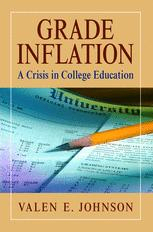
Grade inflation. It has become difficult to give students honest feedback. The slightest criticisms have to be cushioned by a warm blanket of praise and encouragement to avoid provoking oppositional defiance or complete breakdowns. As a result, student progress is slowed, sharply. Rubric-driven approaches give the appearance of objectivity but make grading seem like a matter of checklists, which, if completed, must ensure an A. Increasingly, time-pressured college teachers ask themselves, “What grade will ensure no complaint from the student, or worse, a quasi-legal battle over whether the instructions for an assignment were clear enough?” So, the number of A-range grades keeps going up, and the motivation for students to excel keeps going down.
Student retention. As the college-age population declines, many tuition-driven institutions struggle to find enough paying customers to balance their budgets. That makes it necessary to recruit even more unprepared students, who then must be retained, shifting the burden for academic success away from the student and on to the teacher. Faculty members can work with an individual student, if they have time, but the capabilities of the student population as a whole define the average level of rigor that is sustainable in the classroom. At some institutions, graduation rates are so high because the academic expectations are so low. Failing a lot of students is a serious risk, financially, for the college and the professor.
Student evaluations of teachers. Although a lot of emphasis is placed on research on the tenure track, most faculty members are not on that track and are retained on the basis of what students think of them. The common wisdom, for the untenured, at least whether it is true or not is to find ways to keep the students happy: Expect little, smile a lot, gesture freely, show movies, praise them constantly, give high marks, bring cookies on evaluation day. Wise administrators may read confidential evaluations in context, but students can now use the Internet to retaliate against professors in ways that can damage their ability to sustain minimal enrollments in their classes.
 Enrollment minimums. Students gravitate to lenient professors and to courses that are reputedly easy, particularly in general education. Some students may rise to a challenge; many won’t. They’ll drop, withdraw, or even leave a college that they find too difficult. If you are untenured and your courses do not attract enough students, then you can become low-hanging fruit for nonrenewal. If you are tenured, then it means being “demoted” to teach service courses. In such contexts, the curriculum populated by electives and required courses competing for the lowest expectations is driven increasingly by student demand rather than by what a community of scholars believes undergraduates should know.
Enrollment minimums. Students gravitate to lenient professors and to courses that are reputedly easy, particularly in general education. Some students may rise to a challenge; many won’t. They’ll drop, withdraw, or even leave a college that they find too difficult. If you are untenured and your courses do not attract enough students, then you can become low-hanging fruit for nonrenewal. If you are tenured, then it means being “demoted” to teach service courses. In such contexts, the curriculum populated by electives and required courses competing for the lowest expectations is driven increasingly by student demand rather than by what a community of scholars believes undergraduates should know.
Lack of uniform expectations. It is impossible to maintain high expectations for long unless everyone holds the line in all comparable courses and we face strong incentives not to do that. A course in which the professor assigns a 20-page paper and 200 pages of reading every week cannot compete with one that fills the same requirement with half of those assignments. Faculty members cannot raise expectations by themselves, nor can departments, since they, too, are competing with one another for enrollments.





